Corporate Social Responsibility (CSR) is how businesses large and small can enact positive change. It’s the rapidly growing practice of aligning with socially good programs and relevant causes.
But how can organizations approach their CSR program so that they can maximize their impact in the community and world while also using their allotted resources wisely?
CSR can be practiced in countless ways and comes in many forms. A huge enterprise funding global warming research is practicing. So is a small company that donates to the local food bank. And you can learn important lessons from both.
You don’t have to commit to grand gestures or fork out millions for honorable causes. The important thing about CSR is building trust, raising awareness and encouraging social change.

Although CSR comes in many forms, the most notable CSR examples are:
- Reducing carbon footprints
- Community volunteering
- Improving labor policies
- Social and environmental investments
- Fairtrade projects
- Corporate policies that impact the environment
- Causes for children (education, poverty, etc)
- Inequality, women’s rights, and diversity
From launching local scholarships to funding big charities, there are tons of ways for-profit organizations can get some more CSR under their belt.
Beyond making the world a better place, CSR has been known to positively impact the recruitment and marketing side of businesses, too.
For one thing, feeling positive about an employer’s values (and seeing them reflected in CSR initiatives) means a higher chance of employee retention. When staff have a positive attitude towards the company they work for, they’re more likely to attach their future and success to that of the company. Inspiring CSR equals happy employees.
And having staff actively involved in CSR programs means an attractive company culture to prospective employees. Acting on your corporate social responsibility sets you apart from other companies and puts you in the best light.
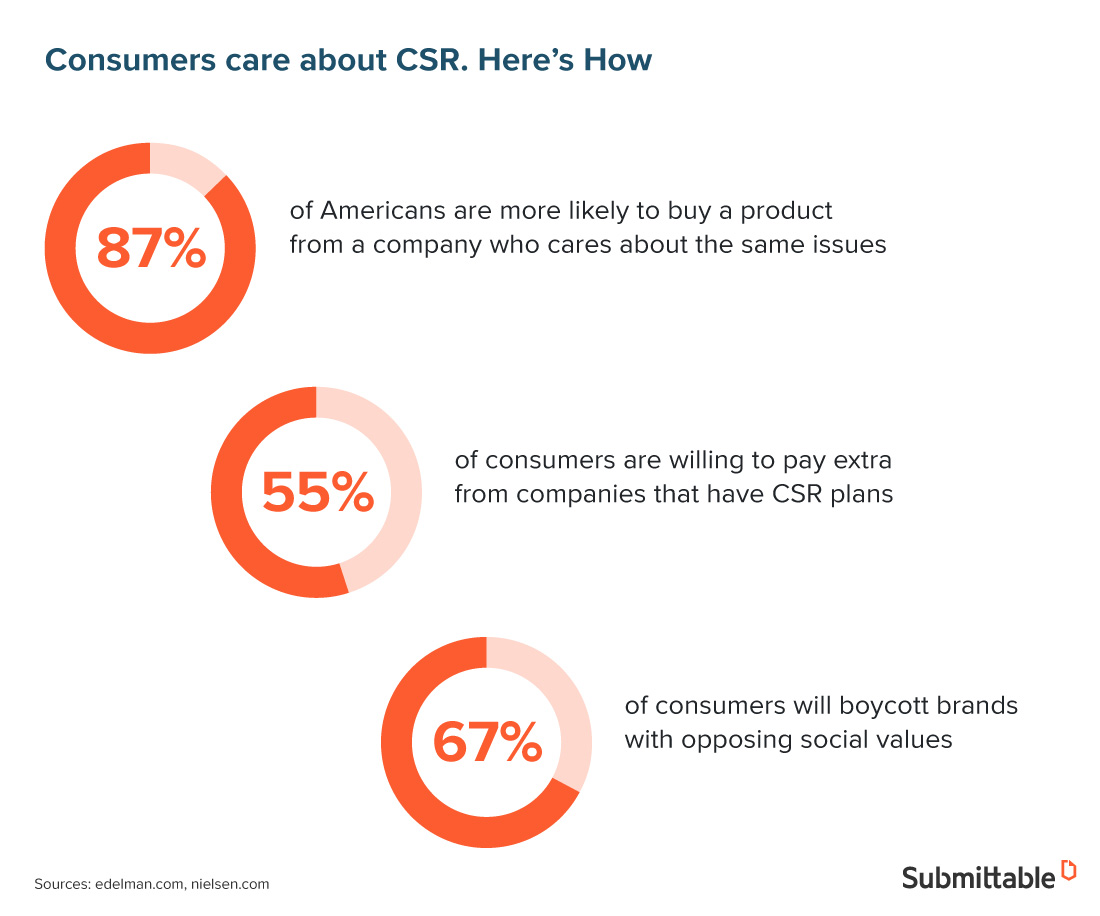
A survey by The Nielsen Global Survey of Corporate Social Responsibility found that over half of participants are “willing to pay more for products and services provided by companies that are committed to positive social and environmental impact.” It also found that two-thirds of those surveyed would rather work for a company aligned with CSR values.
When done correctly, good CSR can completely change the way your customers view your business.
Being a socially responsible company can bolster your image while making real impacts on the world around you. Everyone’s cause is different. You might choose to champion women’s rights, fight poverty on a community scale or fund a local scholarship.
How can Submittable bring your CSR management game to the next level?
Find out how much your organization could save.
What makes a good CSR strategy?
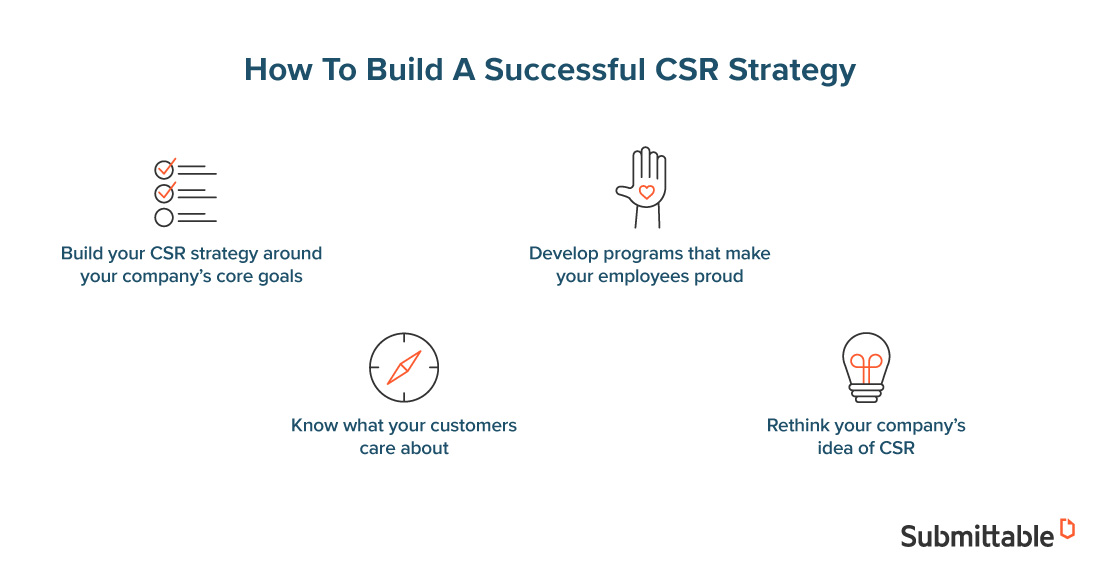
1. Build your CSR strategy around your company’s core goals
Think about what your business already does well along with your values and philosophy and build your CSR strategy around that. Supporting a cause that aligns with your company’s expertise is a great way to build trust and engagement with both consumers and partners. It’s also a great way to maximize impact: you aren’t trying a totally new enterprise, you’re building an arm of your company that is already aligned, but that has the goal of helping the community.
2. Know what your customers care about
A huge 87% of American customers said they’re more likely to purchase a product if a company advocated for an issue they cared about, according to Cone Communications. Consumers are now looking out for socially responsible companies and rewarding it with brand loyalty. Knowing what issues weigh heaviest on their minds, and aligning those issues with your own company’s mission will guide you toward a CSR strategy that works for everyone.
3. Develop programs that make your employees proud.
Protect and grow your biggest asset: your employees. Engaged employees are more likely to stay with a company, according to the Cone study. And 76% of millennials consider a company’s commitment to social and environmental responsibilities when looking for employment. Doing good in the community means more than just being true to your values or strengthening your brand. It also means creating a healthy work culture that everyone is proud of.
4. Rethink your company’s idea of CSR
Reducing environmental resources and encouraging community volunteering are, of course, valuable CSR efforts. However, in the innovative age that we’re in, consumers and companies are redefining what it means to be a responsible business.
Being a fair employer, investing in local communities and creating products to ensure employee wellbeing are all great places to start. Social responsibility needs to start from within and ensuring the happiness of your workforce might be the best place to start.
Being socially responsible doesn’t just mean donating to a non-profit every now and again, it means taking a look at your company’s overall impact and making positive change in as many ways as you can.
So, what companies are hitting the mark with corporate social responsibility?
Here are five big brands giving CSR their top efforts
Aside from being the world’s largest search engine, Google is a big player in the CSR game. In 2017, it reached its 100% renewable energy target and is now the world’s biggest corporate renewable energy purchaser. What’s more, Google provides generous grants to several social impact initiatives including Goodwill Industries International, Pratham Books, and the Equal Justice Initiative.
Corporate social responsibility is key to creating a better place to live in. Google hit the mark on this – by designing and building their facilities from the ground up, functions were customized with sustainability in mind and as a result, achieved 50% less energy than the industry average.
Advanced cooling techniques, smart temperature/lighting controls, and reduced facility energy are just a few of the efforts Google made to hit their sustainability goals.
As well as using over $1billion on renewable energy projects, Google has also helped other businesses to reduce their carbon footprint through services like Gmail.
A study by Reputation Institute measured corporate responsibility to be how committed a company is to being a fair employer, contributing to society and the ability to meet governance goals.
In all three of these, Google ranked as having the best CSR reputation in the world.
By cutting significant costs, standing out from less CSR-savvy companies and being transparent about its achievement, Google has positioned itself as not just a search engine but a pioneer for social responsibility.
The LEGO Group
https://www.youtube.com/embed/CseIzpf9llw
The LEGO Foundation started in 1986 and since then has been working to entertain and inspire millions of children to play and learn. They’re also one of the most notable examples of excellent CSR. Following in Google’s footsteps, The LEGO Group is working towards 100% renewable energy by 2030.
Pursuing their goals to create a better world for children, LEGO has also made public commitments to ethical employment practices and high standards for health and safety at their factories.
But perhaps the biggest step LEGO has made to building a sustainable future is the switch from non-sustainable plastic to sugarcane for their timeless toys.
The company has been public about its efforts to find environmentally-friendly alternatives to material and packaging.
The new lego bricks have already been rolled out and are made from 100% sustainably sourced sugarcane. They look and feel the same as the old bricks and the company plans to replace most products with the sugarcane plastic by 2030.
Through the power of imagination and play, one of LEGO’s key missions is “to create a better, brighter world for our children to inherit”. And what better way to fulfill the statement than taking responsibility for the environment through sustainable changes?
The Walt Disney Company
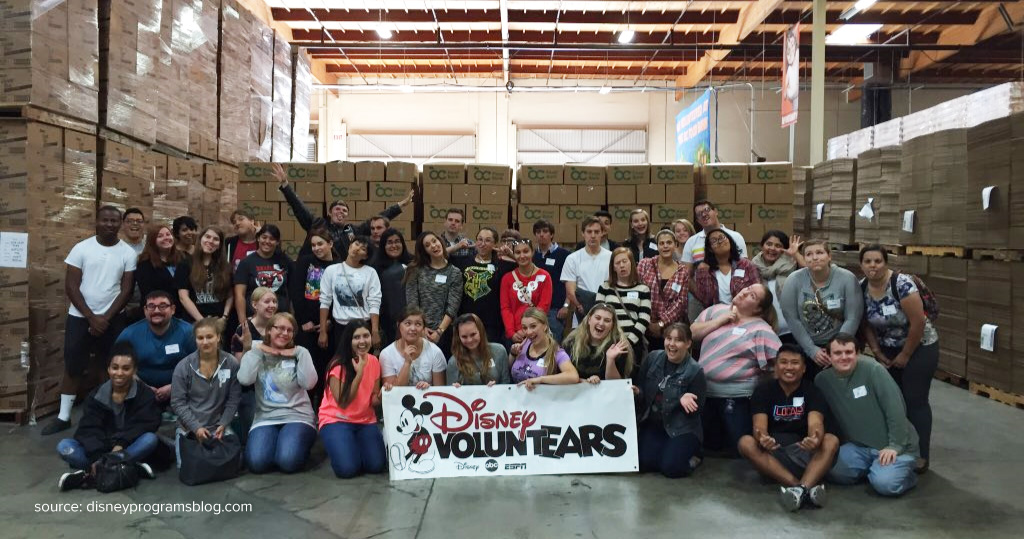
The powerhouse of Walt Disney is one of the largest entertainment companies in the world and is among the top five companies doing their bit for corporate social responsibility.
A huge focus for Disney is volunteer work—one year, they gave away a million free Disney Theme Park tickets to a million people in exchange for one day of volunteer service (with their Give A Day, Get A Disney Day program). The company also cares about environmental education and spreads awareness through the Disneynature documentaries. The profits from these films helped over three million trees in Brazil’s threatened Atlantic Forest, as well as 50,000 acres of savannah in South Africa.
A key factor of good corporate social responsibility is protecting the environment and the Walt Disney Company has it nailed. One of the company’s main goals is to reduce waste and emissions. It’s been actively clamping down on ways to reduce waste in amusement parks and resorts.
Employee happiness is a big part of successful CSR and the Walt Disney Company knows this. As well as exciting perks and benefits, the company also encourages employees to get involved in the VoluntEARS program, a charity made up of Disney cast members.
The company’s mission is to develop and build opportunities for Cast Members to contribute their own time to make positive impacts on the community.
Microsoft
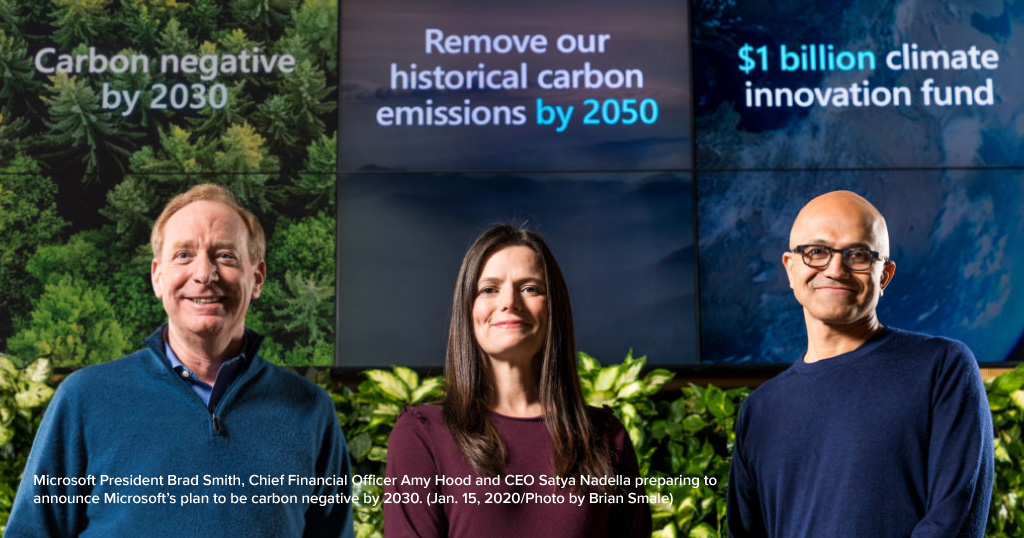
Microsoft’s corporate social responsibility is led by the company motto, “to serve globally the needs of communities and fulfill our responsibilities to the public”. The tech giant ranked number one on Corporate Responsibility Magazine’s 100 Best Corporate Citizens in 2018 and places as the top company for both environmental and social scores.
Microsoft is a pioneer for environmental change.
In 2018, the company achieved 100% carbon-neutral activities and plans to be completely ‘carbon negative’ by 2030.
BMW

As one of the world’s leaders of premium automobiles who also cares about the greater good, BMW ranks high on the CSR list. The automobile company puts its efforts into lots of sustainable practices, and with inspiring results too. BMW promotes diversity in education, with inclusive programs and incentives all over the globe.
Gender and race equality is another important aspect for BMW and the company has put several initiatives and hiring practices into place to ensure diversity in the business.
One of the most notable CSR efforts is the BMW Children’s Traffic Safety Education, an expert program that teaches road safety in China and aims to improve road safety awareness.
Although traffic fatalities have trended downwards since the first quarter of 2019 (by 2.2%), driver irresponsibility is rising. BMW is actively working to educate children on the topic so they learn about its importance before they reach the driving age.
BMW has become a pioneer in labor improvements, too. Employees earn an above-average wage, can work flexible hours and in 2015, the company invested €352 million for employee education, training and development purposes.
Bringing CSR into your business
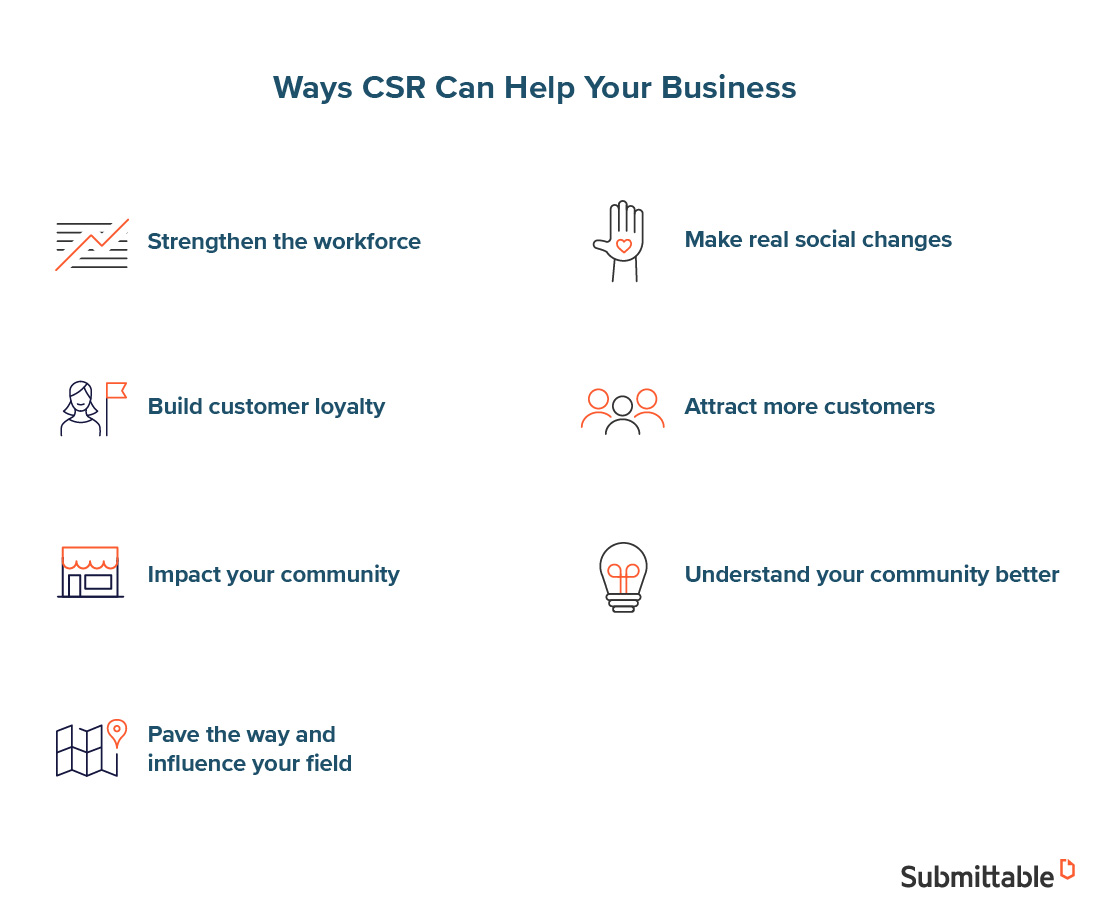
CSR has switched up how companies are running themselves and how their customers view them. Doing good business isn’t enough anymore.
Quality products are no longer the only thing consumers are looking for when deciding where to make their purchases.
Responsibility and sustainability have come to the heart of what customers look for in a company so it’s time to make yours count. CSR is key for helping to provide for those in need, protecting our environment and making ethical choices.
Managing the entire CSR strategy is a big job. You can run grants programs, review giving requests, collect donations, report on your giving and reduce your administrative work using an all-in-one CSR software.
Implementing CSR initiatives and programs into your business can introduce positive impacts to your community, employee wellbeing and the environment. Let’s all learn from these top companies paving the way towards meaningful corporate social responsibility.
